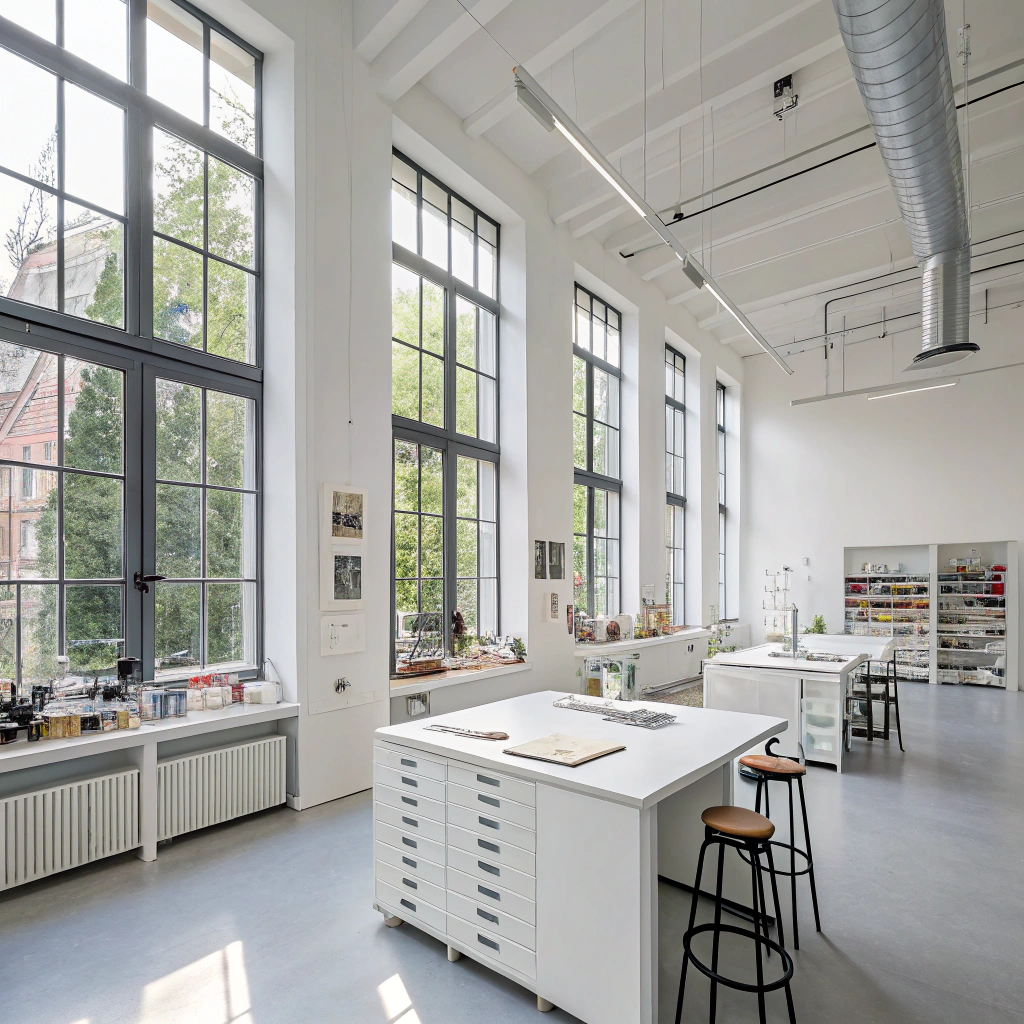
“Paper Goes Beyond the Physical: Unpacking Its Significance as a Medium and a Concept in Human History and Culture”
About Us
Paper Lab Berlin — founded and curated by artist Guy Lougashi — is an independent platform dedicated to research and self-experiment on paper.
At Paper Lab, we approach paper not simply as a material but as a medium — one that can be made, shaped, manipulated, and re-formed from a wide range of sources. Our programs explore paper as research, labor, and topography, bridging technical knowledge with artistic inquiry.
The Lab is known for the concept of self-topography on paper: an invitation to explore identity, memory, and experience through dialogue with the medium. Just as landscapes are marked by forces of nature, so too does paper record the marks of labor, process, and imagination. This perspective guides all our activities, from workshops and masterclasses to residencies and traveling programs.
Based in Berlin but active worldwide, Paper Lab Berlin works online, in person, and in collaboration with institutions across Europe and beyond. Over the past decade, our workshops and Paper Camps have been hosted by academies, museums, and independent studios, creating spaces where participants can engage in experimentation, technical exploration, and meaningful process.
Every program embodies the same ethos: to treat paper as a living medium for research and expression, and to provide a framework for participants to develop their own artistic DNA.

Self-Topography on Paper
At Paper Lab Berlin, we understand paper not merely as a material but as a living surface — a kind of skin. Like skin, it records, protects, and connects. It can hold the faintest trace of a gesture or the weight of entire landscapes. It preserves vague footprints as well as complex structures, becoming a document of memory, presence, and absence.
Self-topography on paper is the philosophy that guides our work. It treats the self as a landscape, mapped through layers of experience, emotion, and cultural heritage. Every fold, scar, and impression left on paper echoes the reliefs of our own inner and outer terrains. The studio becomes a site where this mapping takes place: repetition, labor, and experiment slowly uncovering fragments of identity and collective memory.
In this way, paper becomes both vessel and mirror. It mirrors the topography of the body and the earth — wrinkled, scarred, shifting — and serves as a vessel capable of holding what cannot be spoken but can be inscribed. By embracing paper as skin, we open it to become a cartography of the self, a medium that links individual experience with wider cultural and natural processes.
Self-topography on paper is therefore not only an artistic practice, but also a philosophy of presence: a way of tracing what is fragile yet enduring, personal yet universal, ephemeral yet never not here.
-
Visual Artist · Founder of Paper Lab Berlin.
Contact: info@paperlab.info
Instagram: @guy.lougashiAs founder of Paper Lab Berlin, Guy Lougashi has developed a practice that treats paper not simply as a material but as a field of research, labor, and self-topography. His work is grounded in repetition and process — casting, stitching, piercing, soaking, and reshaping — where paper becomes both the subject and the medium of inquiry.
Lougashi’s philosophy is that paper mirrors the human condition: fragile yet resilient, scarred yet open to reinvention. Through acts of manipulation and transformation, he explores how surfaces record memory, identity, and time. His imagery often draws on motifs of lunar landscapes and the astronaut, symbols of isolation, mapping, and the desire to chart inner and outer terrains.
At Paper Lab Berlin, this approach translates into programs that combine technical exploration with conceptual depth. The Lab reflects Lougashi’s belief that working with paper is not about achieving a final product, but about entering into a dialogue with the medium itself — a dialogue that opens pathways to experimentation, discovery, and self-recognition.


